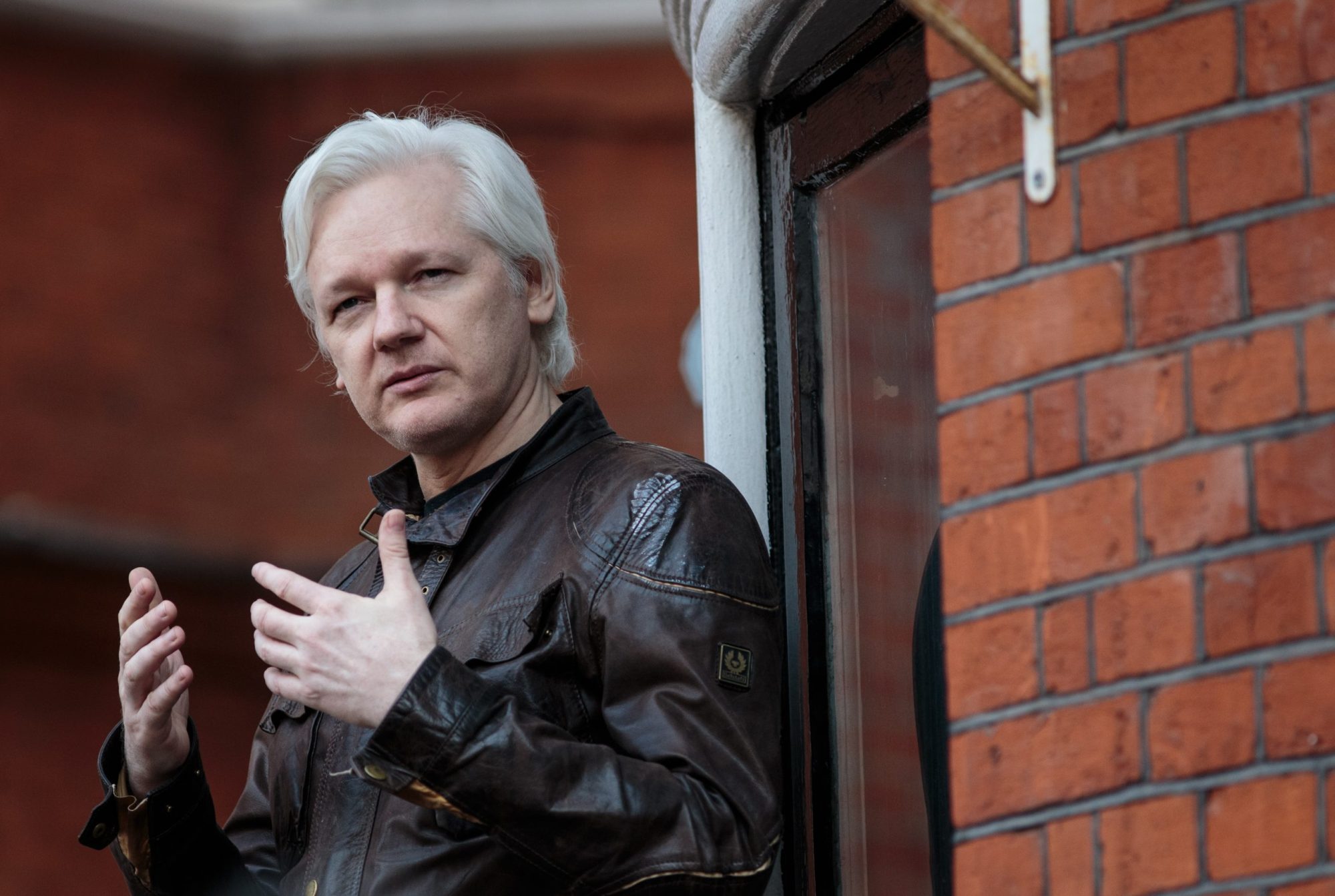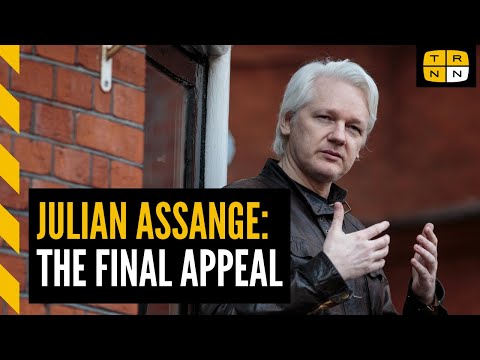After a years-long battle, Julian Assange’s legal team returned to London’s High Court on Tuesday, Feb. 20, to request permission to appeal the founder of WikiLeaks’ extradition order to the US, where he faces 18 charges under the Espionage Act despite not being a US citizen. Assange has faced extensive persecution by the US government and its allies for WikiLeaks’ role in exposing the extent of US war crimes and espionage around the world. The Real News Network reports from London, UK.
Produced by: Ross Domoney and Nadia Peridot
Videography and editing by: Ross Domoney
Transcript
Reporter: This week, Julian Assange, the Australian journalist and publisher renowned as one of the founders of media organization WikiLeaks, is facing a landmark decision at the Royal Courts of Justice in London.
Kristinn Hrafnsson [Editor-in-chief, WikiLeaks]: The travesty that has been going on against Julian Assange throughout all these years, there needs to be a change. There needs to be, in the end, justice, justice for Julian Assange.
Reporter: This significant two-day hearing is the last chance in British courts for Assange’s legal team to appeal the US’s request to extradite him on charges of espionage, where his lawyers and his wife, Stella, fear he would be subject to an unfair trial and unbearable detention conditions.
Stella Assange: What’s at stake is the ability to publish the truth and expose crimes when they’re committed by states.
Demonstrator: It should not be a crime to publish things as a journalist. It’s normal.
Reporter: WikiLeaks serves as a platform for sharing classified or otherwise privileged information in the public interest, and, in 2010, revealed military documents which exposed US war crimes in Iraq and Afghanistan.
Vincent De Stefano [Founder, Assange Defense]: Shame for my country, which is persecuting a man whose only crime is sharing the truth of the war crimes, misdemeanors, and calumny of the United States’s government.
Reporter: Despite him not being a US citizen, the Trump and Biden administrations have pursued Assange in the politically motivated case, which intends to criminalize the disclosure of illegal state activity.
Stella Assange: I shouldn’t even talk about fairness at this stage because the country that’s trying to extradite him plotted to murder him. What are we even entertaining in these courts?
Reporter: Human rights organizations stood shoulder to shoulder with journalists as people of all backgrounds gathered to bear witness to this important event.
Kristinn Hrafnsson [Editor-in-chief, WikiLeaks]: Those of you who are journalists, one of your main jobs is to bear witness to injustice. If you cannot stop it, at least bear witness. And what you are witnessing here in the case of Julian Assange is one of the gravest injustices that we’ve seen in latter times, and it will mark the end of journalism if he is extradited. It will not be able to continue in the same manner as before.
So what is at stake for you, journalists, is basically your existential platform. So you have to fight. It’s not activism to fight for the right to practice journalism.
Reporter: The Assange case represents the greatest threat to press freedom, with the future of investigative journalism in jeopardy.
Stella Assange: And the United States is abusing its legal system in order to hound and prosecute and intimidate all of you.
Reporter: Julian Assange’s fight for his liberty is a fight for free speech, freedom of information, and the democratic right to know. And any ruling that prevents his release will cast a dark shadow on the world of free press and the pursuit of truth.
Maximillian Alvarez: Thank you so much for watching The Real News Network, where we lift up the voices, stories, and struggles that you care about most. And we need your help to keep doing this work. So please tap your screen now, subscribe, and donate to The Real News Network. Solidarity forever.




